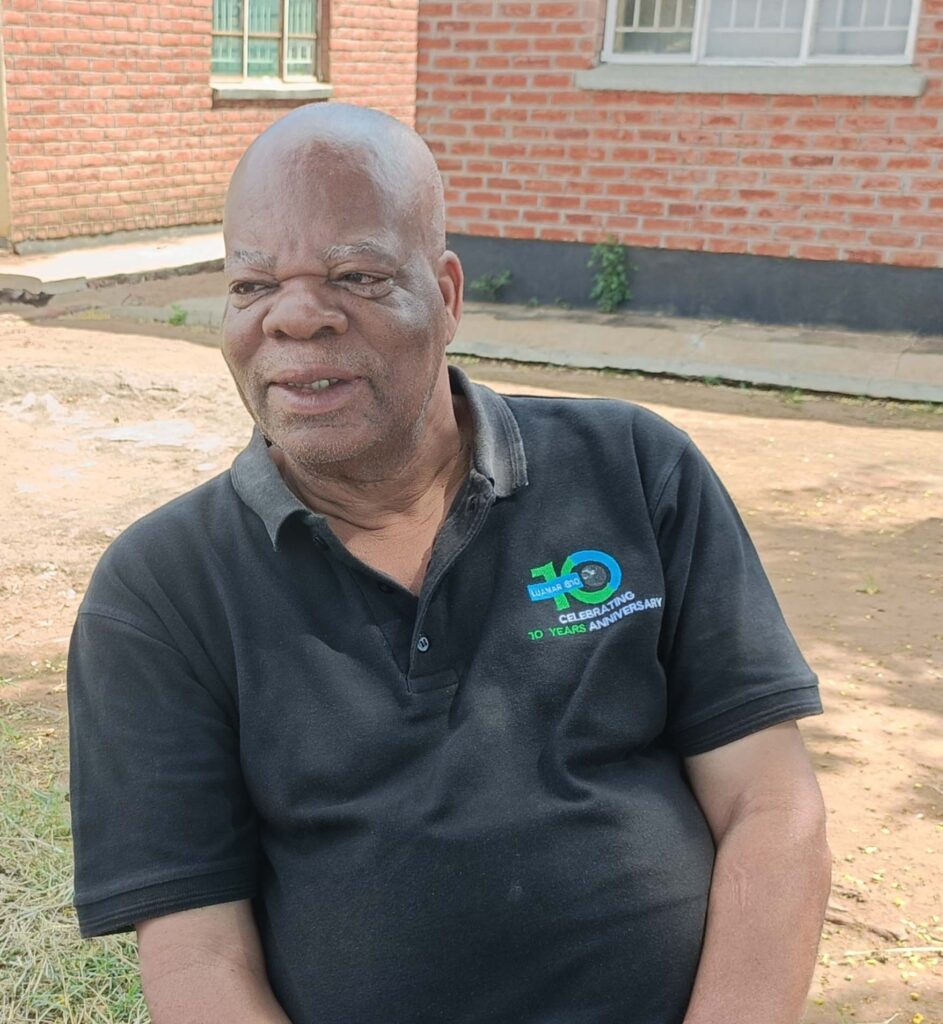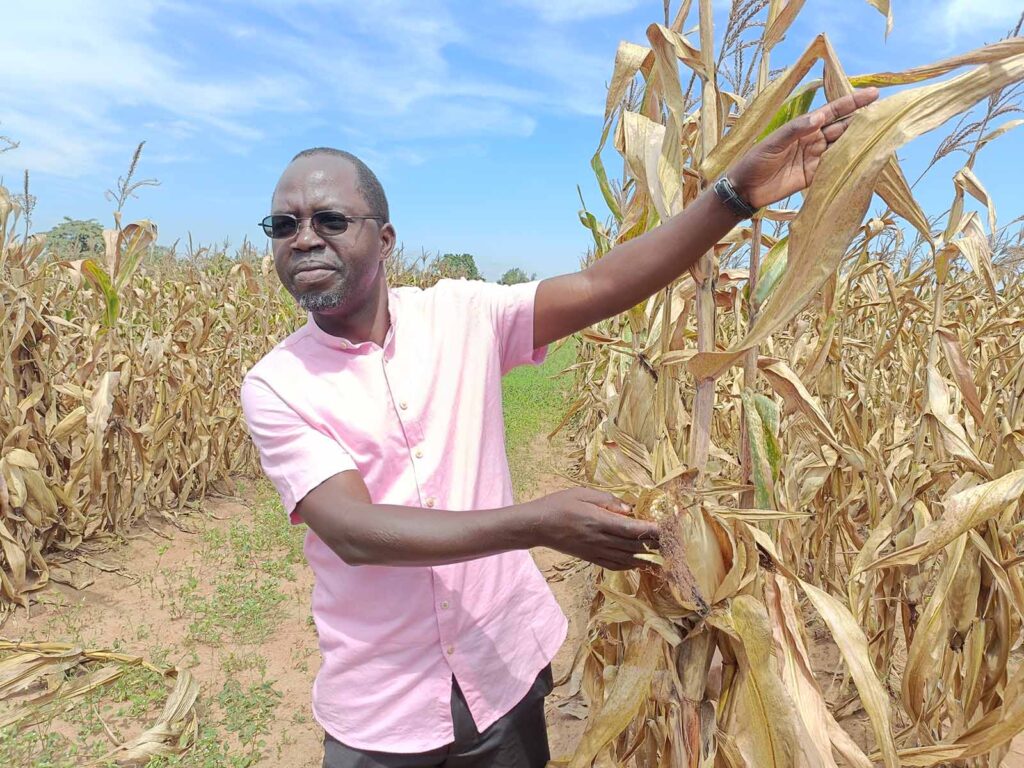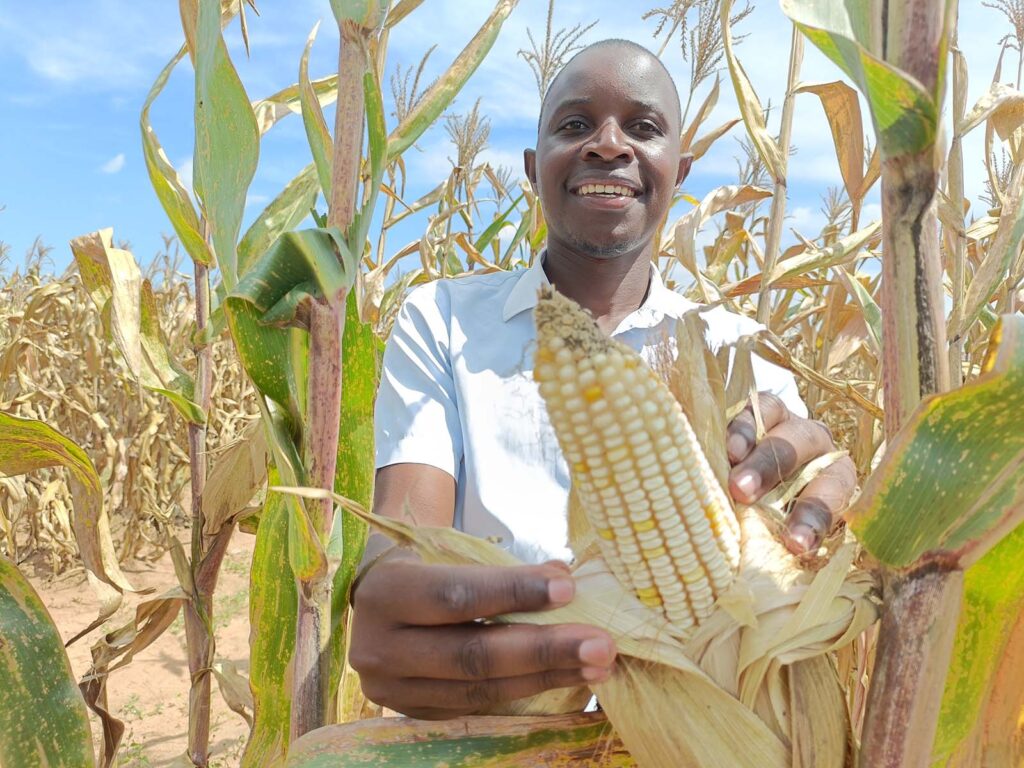By Aghan Daniel I aghandan09@gmail.com
Scientists at Malawi’s Lilongwe University of Agriculture and Natural Resources (LUANAR) have expressed their joy following the excellent performance of the first Bt Maize Confined Field Trial (CFTs).
While speaking to the Seed Trade Association of Malawi (STAM) Biotech and Innovation Committee who made a seeing is believing tour of the site at Bunda College, the scientists led by Dr Abel Sefasi noted that the varieties that they had planted three months ago have shown that they can withstand Fall armyworm.
“We were testing against insect resistance to Fall armyworm. Whereas the Bt maize variety withstood the insect, the ordinary maize which does not have the Bt gene was eaten up by the insects,” said Dr Sefasi.

He is a Molecular Biologist and holds a PhD in Plant Breeding and Biotechnology from Makerere University in Uganda.
The CFTs were planted on December 26, 2023.
According to Dr Trust Donga the entomologist in the project and Prof James Bokosi who is the project advisor from the same university who are also involved in the project said that he was happy with the manner their team was handling the trials.
The Committee, led by STAM Secretary General, Nessimu Nyama expressed optimism that Malawi will soon benefit from the labours of the researchers. It is supported by funds from the African Seed Trade Association’s (AFSTA) Plant Biotechnology Project.
“Looking at the performance of the maize now at these confined trials, we can clearly see that those that were treated with traits of tolerance have done better than the untreated maize. Farmers in Malawi will benefit as they will have seeds that tolerate insect pests such as Fall armyworm,” said Nyama.

According to Dr Sefasi, it will take another three seasons for the scientists to introduce the BT maize into the market. This will only happen if the National Biosafety Authority of Malawi approves the trials as successful. The approval by the NBA will be followed by checking the crop performance in different agro-ecologies of the country. The expected time for this crop to be in the market may be well after 2028.
Should the BT maize be approved in the country, it will be the second genetically modified crop to have been licensed in the Southern Africa country. About four years ago, the country approved the commercialization of Bt cotton which has since been taken up by thousands of farmers in Malawi. About 94% of the land in Malawi is currently planted with the Bt cotton.

Experts point out that the GM maize will help bridge the gap the country experiences annually in maize production. Currently maize production is estimated at a below‑average level of 3.5 million tonnes in 2023. The low maize outturn primarily reflects a downturn in yields, and secondarily localized crop losses and damage in southern districts due to flooding caused by the passing of Cyclone Freddy in March last year.
Genetically modified organisms or GMOs has become the common term consumers and popular media use to describe foods that have been created through genetic engineering. Genetic engineering is a process that involves identifying the genetic information—or “gene”—that gives an organism (plant, animal, or microorganism) a desired trait; copying that information from the organism that has the trait; inserting that information into the DNA of another organism and then growing the new organism.









